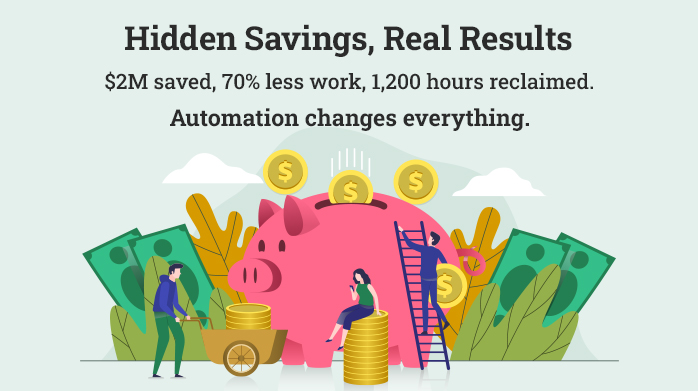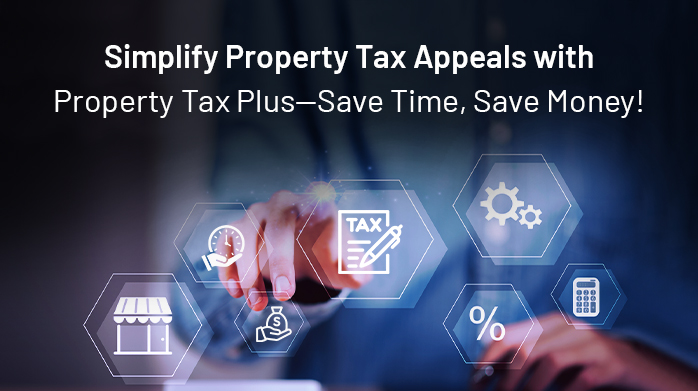When it comes to property tax management, businesses often assume that reducing costs means cutting expenses wherever possible. However, the reality is more nuanced. The secret to reducing property tax liabilities lies in making smart investments in advanced property tax software solutions. These tools save time, enhance accuracy, uncover hidden savings opportunities, and improve operational efficiency.
As Benjamin Franklin famously said, “An investment in knowledge pays the best interest.” The same principle applies to investing in the right property tax software—it’s an investment that delivers measurable returns.
The High Cost of Outdated Systems
The complexity of property tax management in the U.S. is staggering. Businesses collectively pay over $500 billion annually in property taxes, according to the U.S. Census Bureau. Yet, studies from Ernst & Young reveal that 60-80% of businesses overpay due to errors or missed appeals.
“Many companies rely on manual processes or outdated systems, leaving them vulnerable to inaccuracies and missed deadlines,” explains Mark Steber, Chief Tax Officer at Jackson Hewitt. “Property taxes are one of the most overlooked areas where businesses lose money because they don’t have the right tools in place.”
These errors, coupled with late payments, often lead to penalties, overpayments, and missed opportunities for appeals. A Deloitte study further emphasizes that businesses without automated property tax solutions experience 20% more errors in property tax payments, leading to significant financial losses.
Why Smart Investments in Property Tax Software Make a Difference
Investing in advanced property tax automation tools offers a clear return on investment (ROI). According to a 2023 McKinsey report, businesses that implemented property tax software solutions saw a 15-20% reduction in tax liabilities within the first year and saved over 30% in administrative costs.
“Automation doesn’t just streamline processes—it drives value,” says Ryan McCormick, Senior Vice President of the Real Estate Roundtable. “With the right tools, businesses can uncover savings opportunities they didn’t even know existed.”
Key Benefits of Property Tax Software Solutions
1. Unmatched Accuracy
A single mistake in property tax management can cost thousands. Automated tools ensure 99.99% accuracy, helping businesses avoid overpayments and penalties.
“Accuracy is the foundation of good tax management,” says Lisa Fitzpatrick, CEO of Bloomberg Tax. “Without it, businesses are leaving money on the table.”
2. Optimized Appeals
The National Taxpayers Union Foundation states that 40% of property tax assessments are too high, yet fewer than 5% of businesses file appeals. Predictive analytics in property tax solutions can flag savings opportunities, enabling businesses to file appeals effectively and reclaim over payments.
3. Significant Time Savings
Manual property tax management processes consume hundreds of hours annually. Automated property tax software workflows reduce administrative hours by 60%, as revealed in a PwC study, freeing teams to focus on strategic priorities.
4. Centralized Insights
Advanced property tax automation platforms provide real-time dashboards and analytics, enabling businesses to make informed decisions.
“With data-driven insights, businesses gain visibility across their entire portfolio, ensuring no stone is left unturned,” states Deloitte’s 2022 Tax Technology Report.
5. Cost Savings
The U.S. Chamber of Commerce highlights that companies using property tax software solutions save 12% annually on property tax liabilities. These savings stem from fewer errors, efficient appeals, and long-term planning supported by automation.
Real-World Results: A Retail Success Story
A large retail chain with over 1,000 U.S. locations adopted a property tax software solution to streamline its operations. The results were remarkable:
• $2 million saved in the first year through accurate assessments and appeals.
• 70% reduction in manual work, saving over 1,200 hours annually.
• A streamlined, automated process that eliminated missed deadlines and penalties.
“The ROI was immediate,” their CFO shared. “We no longer feel like we’re drowning in paperwork, and we’re saving money we didn’t even realize we were losing.”
The Hidden Costs of Inaction
Failing to adopt property tax solutions doesn’t just cost money—it costs time, resources, and peace of mind. A 2023 Ernst & Young survey found that 76% of CFOs identified manual processes as a barrier to scalability and efficiency in their tax operations.
“You’re not just losing money,” McCormick explains, “you’re losing time and opportunities to reinvest in your business.” Overpayments, penalties, and missed savings add up quickly, making inaction the most expensive choice.
Investing in the Future of Property Tax Management
Property taxes represent one of the largest expenses for businesses, but they’re also one of the most manageable—with the right tools. A 2023 Deloitte study revealed that companies adopting property tax automation solutions reported an average ROI of 200% within two years.
As Franklin Roosevelt aptly stated, “Taxes, after all, are the dues that we pay for the privileges of membership in an organized society.” The key, however, is ensuring that businesses pay no more than their fair share.
The Bottom Line
The property tax paradox is clear: lowering costs requires strategic investments. By embracing property tax software solutions, businesses can reduce liabilities, save time, and improve operational efficiency. As Lisa Fitzpatrick succinctly puts it, “Tax management isn’t just a process—it’s a strategy. The smarter your approach, the better your results.”
Are you ready to take the next step in revolutionizing your property tax management? Contact Property Tax Plus today for a personalized demo and discover how smart investments in property tax software solutions can drive long-term savings and efficiency.







